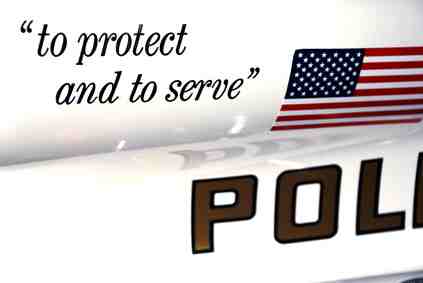International - Written by Barry & Richard on Tuesday, September 27, 2011 0:25 - 1 Comment
‘To protect and serve’ or ‘we trust…and we also verify’: Two sides of the global investigation coin
 By Neil Mcinnes, Senior Associate, Pinsent Masons LLP
By Neil Mcinnes, Senior Associate, Pinsent Masons LLP
Last week saw the C5 Global Investigations conference in London. A range of regulators from outside of the UK did some early Christmas shopping highlighted the benefits where a company wishes to cooperate over a global regulatory investigation.
With the usual caveat that they spoke in their personal capacity senior investigators and lawyers from the US, Switzerland, and Italy as well as the competition authorities gave their views on the key trends on cross-border information sharing among investigators.
What lessons are there to be learnt, according to the international enforcement agencies?
Lesson 1 – The mutual legal assistance process presents timing problems for regulators
There was candour on the limitations of the existing processes.
Jean-Bernard Schmid, State Prosecutor in Geneva, provided the example of his powers to trace assets through bank accounts spanning multiple jurisdictions. Time is the key factor here. Processing mutual legal assistance requests or extracting information from less cooperative overseas authorities are often decisive hurdles for an investigation. It may mean it takes an enforcement authority several years to unpick a series of back-to-back bank transfers which had taken seconds to effect in realtime. Only then might proof emerge of the identity of the ultimate beneficial owner of funds, which can unlock the route to a successful prosecution.
Troy Beatty, Senior Counsel and Branch Chief, in the Comparative Law and Regulation Office of International Affairs at the US SEC, raised similar practical issues when resources were finite: it was often the company which could gather the evidence quicker than the regulator.
Lesson 2: Company investigations can help regulators bypass the roadblocks of mutual legal assistance
Where companies wish to volunteer evidence to regulators (such as their own banking records from overseas or other material from a far flung branch office), this is likely to be a welcome short circuit to the delays of mutual legal assistance.
The implicit message from the authorities is that this type of cooperation has real value and will be rewarded – if the company is looking to settle its own liabilities. As part of their internal investigation strategy, companies are well-advised to consider what might be termed their “evidential leverage” in their dealings with a regulator and when defining the scope of an investigation they might undertake as part of a formal or informal self-reporting process.
Lesson 3: – Internal investigations – where else?
Where else? This is a very expensive question. Companies that have been through the process regularly cite ‘scope creep’ as the major headache facing any investigation they conduct in partnership with a regulator: ‘we reported about our branch office in Bogota, and now the regulator wants the same again but for all our operations in Latin America’.
Bill Stuckwisch, Assistance Chief, FCPA Unit at the US DoJ, was sanguine: provided companies are communicating with the regulator, costs and ‘runaway scope’ can be mitigated. In our view this should, and is likely to, be an early agenda item when opening up communication with an authority.
Lesson 4 – No consensus on whether existing processes are sufficient but informal cooperation between authorities is growing
When assessing whether mutual legal assistance structures are currently fit for purpose, views of regulators differed – perhaps unsurprisingly. Laura Pedio, from the Public Prosecutor’s Office in Milan, put forward the case for structural change: in her view, there is a need for a new international body to co-ordinate prosecutors. Others pointed to the ability for regulators to work together more closely when investigations become international – but the information-sharing mechanisms were not broken. Informal networks were noted as being of great value here for each authority to share and request information.
Lesson 5: – If you choose to be cuddly, the regulators say you will be rewarded… provided you are not too cute
For a company wishing to cooperate, unsurprisingly regulators were at pains to emphasise the rewards of doing so – and argued that there is now more certainty for corporates who self-report than ever before. As we have reported, there are limitations in the UK system – for more on this watch this space…
From the US perspective, Bill Stuckwisch said: “We have strived to show voluntary cooperation will be rewarded” and predicted an ongoing expansion of public/private partnerships in global investigations.
But there is a line companies should be wary of. A company will tread a dangerous path if they assume – either because of the regulator’s stretched resources or their apparent lack of appetite to conduct their own formal investigation – that the company can dictate scope or that disclosure is on its own terms.
From a UK perspective, there are plenty of tools at the hands of the regulators if they conclude a company has played “hide the ball” and failed to disclose material that is relevant to the extent of a problem.
The DoJ approach was summed up by Bill Stuckwisch: “”We trust… and we also verify”. Nice.



[…] ‘To protect and serve’ or ‘we trust…and we also verify’: Two sides of the global investiga…: Neil Mcinnes, thebriberyact.com, shares a list of lessons that need to be learned, according to the international enforcement agencies. […]